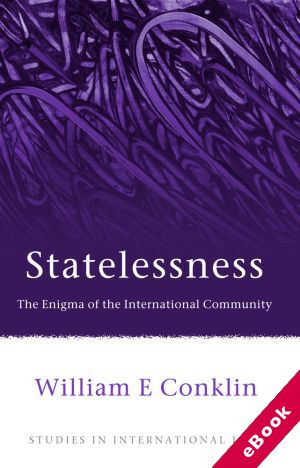
The device(s) you use to access the eBook content must be authorized with an Adobe ID before you download the product otherwise it will fail to register correctly.
For further information see https://www.wildy.com/ebook-formats
Once the order is confirmed an automated e-mail will be sent to you to allow you to download the eBook.
All eBooks are supplied firm sale and cannot be returned. If you believe there is a fault with your eBook then contact us on ebooks@wildy.com and we will help in resolving the issue. This does not affect your statutory rights.
Statelessness poses the enigma of a widespread absence of membership in an international community claiming universal standards for all natural persons. After identifying profound legal, social and economic consequences of the enigma, Conklin critically evaluates the traditional efforts to recognise and reduce statelessness. The problem, he argues, rests in the obligatory nature of a law, domestic or international.
By closely analysing a remarkably broad spectrum of court and tribunal judgments from many jurisdictions across the globe, Conklin explains how two international law discourses, the one discourse inside the other, struggle as to the nature of an international community. The legal bond of the one community rests in a state's determination of one's allegiance to the state. Such a bond justifies the state's freedom to confer, withdraw or withhold one's nationality.
This international community hereby incorporates a state's freedom over nationality matters, risking statelessness. The other international community highlights a legal bond of socially experienced relationships. Such a bond, judicially named 'effective nationality', exists independent of allegiance. Because the legal bond as social bonding exists independent of the wills of states, all states are legally obligated to protect stateless persons. Harm to a stateless person represents harm to the international community as a whole.